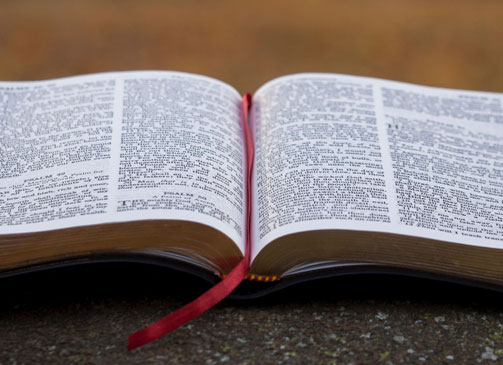March 22, 2023 at 8:00 a.m.
The door of hope and promise
 Last May, my beloved brother-in-law died. I was with him and my sister for the last moments of his life. Death is so excruciating, so unbearable, so final. The reality of living without our loved ones is beyond imagining. But there it is — beyond our control. We are bereft. I am sure this is the way that Martha and Mary felt in the Gospel this Sunday. Their beloved brother was dead. Now what? Where do they turn? Of course they turned to Jesus — first in hope, then in anger, then in grief. And there was much more to the story!
Last May, my beloved brother-in-law died. I was with him and my sister for the last moments of his life. Death is so excruciating, so unbearable, so final. The reality of living without our loved ones is beyond imagining. But there it is — beyond our control. We are bereft. I am sure this is the way that Martha and Mary felt in the Gospel this Sunday. Their beloved brother was dead. Now what? Where do they turn? Of course they turned to Jesus — first in hope, then in anger, then in grief. And there was much more to the story!
All the readings for this Sunday reflect on death, but all the readings also bear hope and promise in the face of life’s most terrible end. In the First Reading, the prophet Ezekiel has a vision of a field of dry bones. This represents the people of Israel who have been beaten in war with thousands killed or taken into exile in Babylon. The temple, God’s presence among them, will be totally destroyed. Yet Ezekiel speaks of a time in the future when all will be repaired. God will open the graves of the people. God’s spirit will raise the fallen ones and breathe new life into this fearful ruin. The promise is clear — God will bring about restoration: “I will do it, says the LORD.” And in time, a long time, God and the people accomplish this.
St. Paul takes up this promise of hope and new life; he says that the One who raised Christ from the dead will raise us up through the Spirit dwelling in us. Paul makes it clear that this is both a spiritual and physical rebirth. Our sins are forgiven and our mortal bodies will be raised. We can live fully into the resurrected life of Jesus the Christ beginning now!
The Gospel brings us back to the tomb — to the experience of death that says our hope is not yet realized. John establishes that Lazarus is really dead. Martha and Mary remind Jesus explicitly, “If you had been here our brother would not have died.” Perhaps in their plea we can hear the cry of so many, “Why O Lord, couldn’t you have saved our loved one?”
Even though Jesus is swept into the grief around him — we are told that he wept — Jesus takes this time to remind Martha that Lazarus will rise. Martha believes he will on the final day. Jesus uses the powerful “I AM” statement to draw Martha into a deeper understanding. Jesus says, “I am the resurrection and the life; whoever believes in me, even if he dies, will live, and everyone who lives and believes in me will never die.” Martha proclaims that she believes, “Yes, Lord, I have come to believe that you are the Christ, the Son of God.”
Jesus asks Martha if she believes that he is the resurrection and the life. How would we answer his question? Of course we believe, we proclaim it in the creed! We hear it at every funeral. We get it! Or do we? The sisters and friends will go to the tomb and Jesus will raise their brother. We go to the cemetery. The casket is lowered. Our loved one remains there.
How do we live out the hope and promise of their resurrection — of our own resurrection? There is no easy answer. Our faith gives us strength to go through the grief process. The love of family and friends gives us support. We observe that in all of creation, the paschal mystery shouts that life will come from death. Most of all, we look to Jesus. To his love, his life, his story. Next week we will follow him to Jerusalem to agony, to death and to resurrection. That promise of resurrected life is an ever-present reality in our own lives. We must bask it in like the sun wrapping us in reassuring love and new life now and forever.
- Religious freedom watchdog annual report spotlights ‘terrifying crisis of religious violence’ in Nigeria
- Rhode Island AG releases report on clerical abuse in Diocese of Providence
- Court allows subpoena of Archdiocese of Seattle in abuse investigation
- Bishops of the Americas meet to address migration, poverty and other shared challenges
- Cardinal Parolin questions whether missiles, bombs are solution to Iranian people’s aspirations
- Vatican theological commission warns of replacing God with ‘a world governed by machines’
- Expert: Violent 764 group a ‘growing problem’ targeting vulnerable kids online
- Catholic growth in anti-Catholic colonies: The fledgling Church in New England
- Prayer, unity essential as conflict spreads to Gulf States, says apostolic vicar of region
- Church is holy by Christ’s presence, not human perfection, pope says







Comments:
You must login to comment.